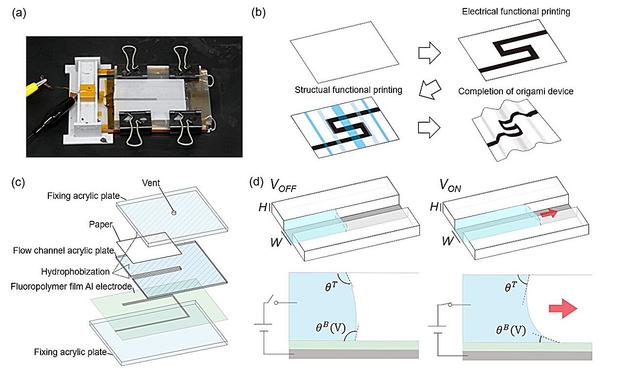2025-10-05 20:26:39
🖊️ Portable printer developed for fabrication of origami devices
#manufacturing
2025-11-05 06:27:27
"keen hiker and cyclist" 🥰
Thank you @…
https://social.growyourown.services/@FediVideo/115492539600579164
2025-09-30 10:34:31
Turbulence and dust fragility in protoplanetary discs
Simin Tong, Richard Alexander, Giovanni Rosotti
https://arxiv.org/abs/2509.24818 https://arxiv.org/pd…
2025-09-03 09:37:53
DCA: Graph-Guided Deep Embedding Clustering for Brain Atlases
Mo Wang, Kaining Peng, Jingsheng Tang, Hongkai Wen, Quanying Liu
https://arxiv.org/abs/2509.01426 https://
2025-09-17 19:27:48
YouTube is like heroin because it pulls you in, hooks you, and slowly drains you. It is designed to be addictive and destructive, and that is exactly why it feels so hard to step away from it.
And yes, I know the excuse, maybe your favorite dealer has not set up shop on PeerTube. But that does not change the truth of the comparison.
PeerTube is like weed, it grows more naturally, it is gentler on you, and it still gives you a high without tearing apart your health and your lif…
2025-09-26 10:08:02
1. Have a simple job to do. Figure out #Makefile will do the job.
2. Think a bit about portability. Makefile becomes slightly more complex.
3. You're finally done. It turns out that some stupid implicit rule in GNU Make fires and adds a `rm` at the end that removes part of the output.
4. Use #Meson.
Just an average #Gentoo day.
[UPDATE: Now I regret using Meson. If you do anything that's not 100% boilerplate, it just keeps throwing obstacles in your way.]
2025-08-28 14:38:08
Unethical computer #protip: When you encounter a broken webpage, hit refresh a bunch of times. If there's an exception being generated and that metric is tied to an alert, you might trigger someone's pager.
2025-08-26 12:26:46
HypER: Hyperbolic Echo State Networks for Capturing Stretch-and-Fold Dynamics in Chaotic Flows
Pradeep Singh, Sutirtha Ghosh, Ashutosh Kumar, Hrishit B P, Balasubramanian Raman
https://arxiv.org/abs/2508.18196
2025-10-01 10:19:28
Edge-On Disk Study (EODS) III: Molecular Stratification in the Flying Saucer Disk
A. Dutrey, O. Denis-Alpizar, S. Guilloteau, C. Foucher, S. Gavino, D. Semenov, V. Pietu, E. Chapillon, L. Testi, E. Dartois, E. DiFolco, K. Furuya, U. Gorti, N. Grosso, Th. Henning, J. M. Hur\'e, \'A. K\'osp\'al, F. Le Petit, L. Majumdar, R. Meshaka, H. Nomura, N. T. Phuong, M. Ruaud, Y. W. Tang, S. Wolf
2025-10-04 20:16:32
Let's be honest. I've been a strong supporter of #OpenPGP (or #PGP in general) for a long time. And I still can't think of any real alternative that exists right now. And I kept believing it's not "that hard" — but it doesn't seem like it's getting any easier. The big problem with standards like that are tools.
#WebOfTrust is hard, and impractical for a lot of people. It doesn't really help how many tools implement trust. I mean, I sometimes receive encrypted mail via #EvolutionMail — and Evolution makes it really hard for me to reply encrypted without permanently trusting the sender!
The whole SKS keyserver mess doesn't help PGP at all. Nowadays finding someone's key is often hard. If you're lucky, WKD will work. If you're not, you're up for searching a bunch of keyservers, GitHub, or perhaps random websites. And it definitely doesn't help that some of these may hold expired keys, with people uploading their new key only to a subset of them or forgetting to do it.
On top of that, we have interoperability issues. Definitely doesn't speak well when GnuPG can't import keys from popular keyservers over lack of UIDs. And that's just the tip of the iceberg.
Now with diverging OpenPGP standards around the corner, we're a step ahead from true interoperability problems. Just imagine convincing someone to use OpenPGP, only to tell them afterwards that they've used non-portable tool / settings, and their key doesn't work for you.
That's really not how you advocate for #encryption.




